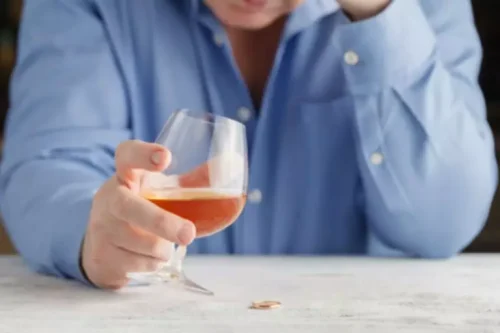
The challenges stemming from their behavior deeply affect loved ones. They often grapple with anger due to the destructive consequences of addiction, feeling upset about the choices, lies, and pain caused. Loved ones may also develop codependent behaviors, such as enabling the addict, taking on the role of a caretaker, and placing the user’s needs before their own. Often, family members or friends require their own therapy for issues related to drug or alcohol abuse. It’s important to remember that you don’t have to go through this alone. There are tips and resources available to help you along your SUD and relationship recovery journey.
Develop Your Relationship-Building Skills with New Directions
- It largely depends on family structure, coping mechanisms, and how everyone adapts to the substance abuse.
- Or you couldn’t afford your mortgage and had to sell your family home, leaving you feeling angry with politicians about the state of the economy.
- Effective communication is key to forming and maintaining healthy relationships.
- When you do spend time with them, ask about how they have been doing and listen.
- If you are struggling with addiction, read about what loved ones go through.
- Recovery is a profound personal journey that significantly affects relationships.
Similarly, this valuing my partner worksheet helps couples who tend to focus on each other’s negative qualities to remember when they first met and what they value about each other now. This Imago worksheet helps identify the qualities you want in a prospective romantic partner. It particularly draws on how childhood experiences and related attachment patterns affect the development of a romantic partnership as an adult. In a relationship after rehab, there will be times where you need to protect yourself and your health. This can take the form of asking someone not to put you in situations that can lead to relapse, such as inviting you out for drinks.

Share your fears.
Loved ones can offer insight, hold us accountable to our goals, and provide perspective on our actions and behaviors. They can help identify triggers and patterns that may hinder our recovery, allowing us to make the necessary adjustments and improvements. Addiction often causes trust problems due to broken promises, lies, and deceit. When someone with addiction repeatedly fails to keep their commitments or tells lies to hide their substance use, it damages the trust loved ones have in them. Chronic drug and alcohol abuse can damage relationships, and lead to severe emotional pain and unhealthy coping skills, such as enabling.

Balancing a Relationship and Personal Recovery Goals
Swiss-American psychiatrist and researcher Elisabeth Kübler-Ross first outlined five stages of grief — sometimes called the Kübler-Ross model — in her 1969 book On Death and Dying. Dr. Josell explains the five stages of grief, including what they are, how they manifest and when to seek support from a therapist who can help you cope. The book helps readers identify the types of verbal and nonverbal communication that enhance and deepen emotional intimacy. This group exercise boosts each member’s self-esteem by asking others about their positive qualities. Often, people are surprised to hear how much they are appreciated and valued by others.
Social support is critical for addiction recovery.
As the focus shifts primarily to substance abuse, genuine emotional intimacy, and connection wane. Loved ones may struggle to recognize the person they once knew, while the individual in recovery may feel isolated and alienated from their support network. Additionally, it’s crucial to accept that relationships may evolve or change after rebuilding trust. Embracing this change and consistently proving oneself trustworthy can lead to the development of stronger or different relationships post-recovery. This acceptance and adaptability are key elements in the process of recovery and trust rebuilding. Respect for personal and interpersonal boundaries is another vital factor in rebuilding trust during recovery.
Conflict resolution is a valuable skill that transforms friction into creative tension, a driver of positive change (Shipley et al., 2018). This how to improve communication worksheet outlines a set of seven essential communication skills that enable us to listen actively and respond constructively, without judgment. Good communication and understanding how to manage conflict are essential relationship maintenance skills (Halford, Pepping, & Petch, 2018).
- Loved ones may carry deep-seated resentment, accumulated from years of pain and broken promises.
- Many people in this situation continuously put the addict’s needs above their own, often to the detriment of their emotional and physical well-being.
- Not only are relationships important, the health of those relationships also matters.
- Here are some reasons that relationship recovery is a critical part of addiction recovery.
- The same way that addiction can destroy friendships, it can also impact relationships with loved ones.
Look for Sober Activities and Groups
People in recovery from substance use disorders need to heal themselves and build healthy relationships in recovery and beyond. The path to sobriety often reveals the impact of drugs and alcohol on loved ones and highlights the need for rebuilding trust, forging new connections, and fixing unhealthy relationships. Most people in addiction recovery have some relationships that are supportive and helpful, some that are risky or harmful for their recovery in some way, and some that are a little bit of both.
Relationships that Perpetuate Addictions
If you want to get sober and repair your relationships, OTR can help. OTR can give you a firm grip in early sobriety and set you on the path to repairing your relationships (and more). We are in a unique position with these types of relationships, in that we understand why someone continues to drink and/or use even though it’s destroying them. You can’t force them to quit using, you can only hope they seek the rooms on their own volition. If they seek help, step 12 fully applies and you have a great opportunity to be of service. Guiding others through the program helps us be of service to other alcoholics and to build up our sober community.


